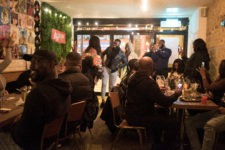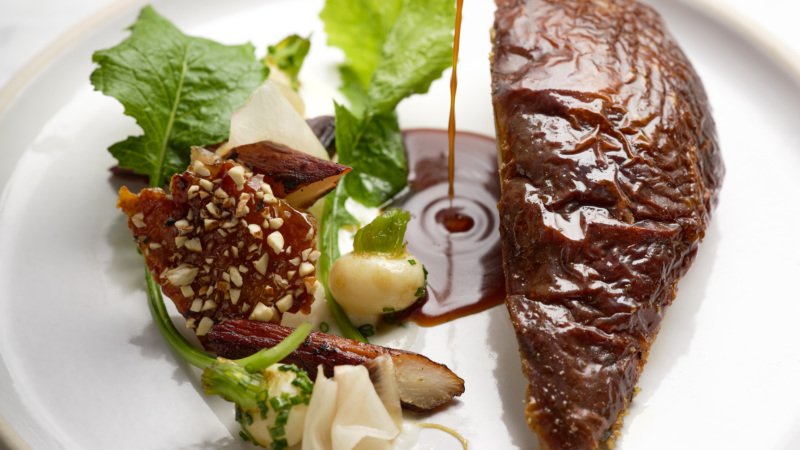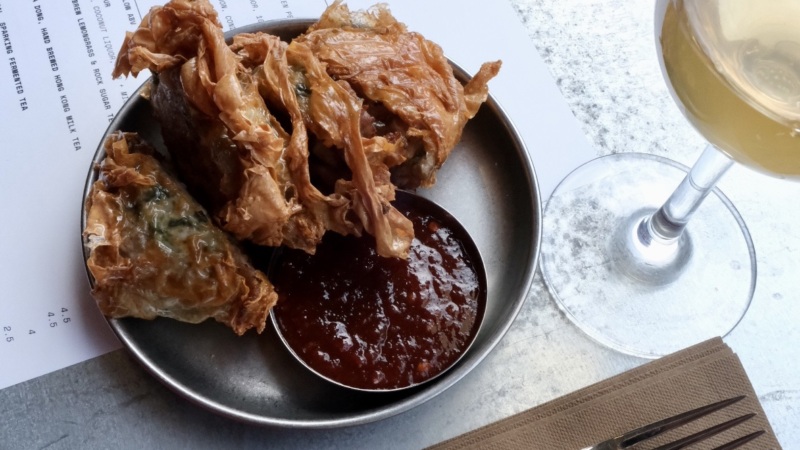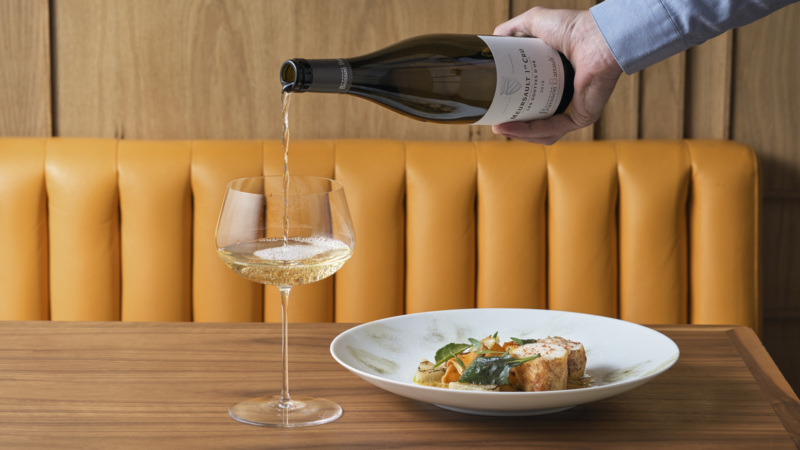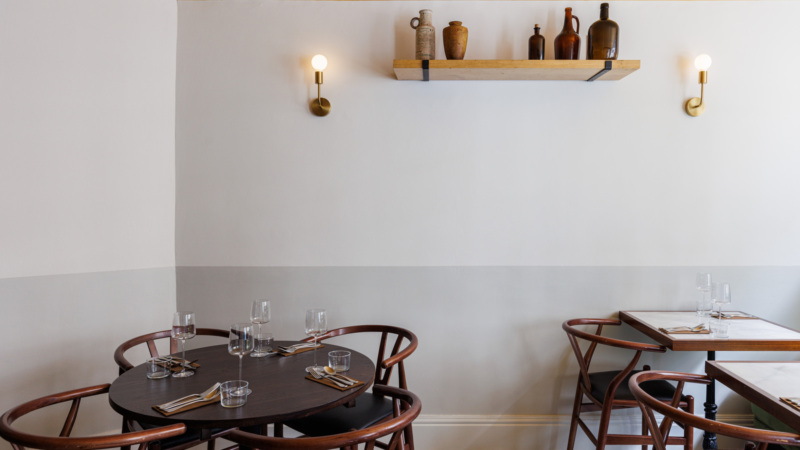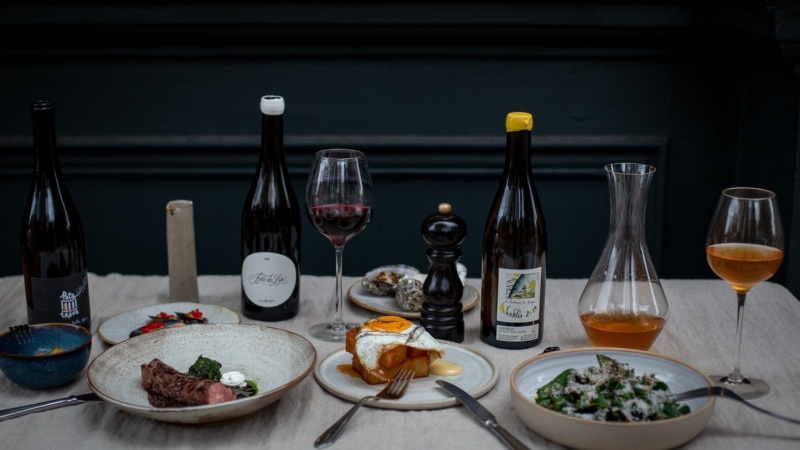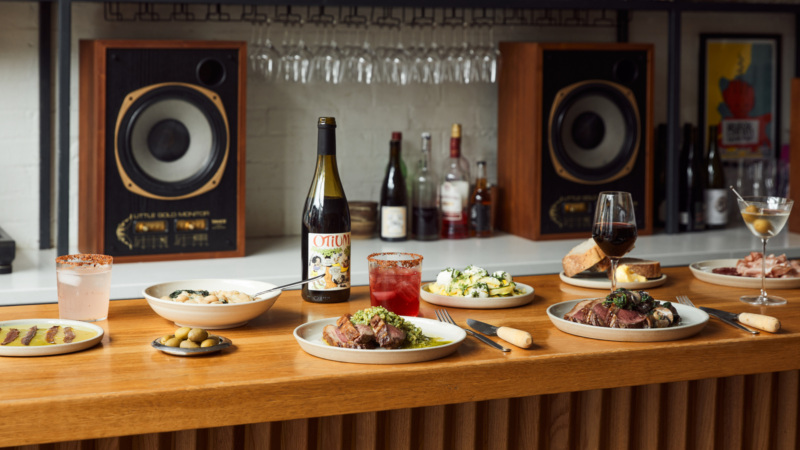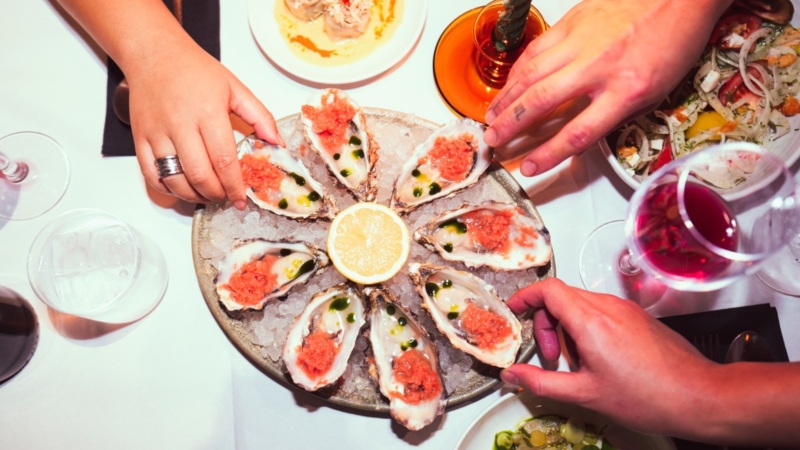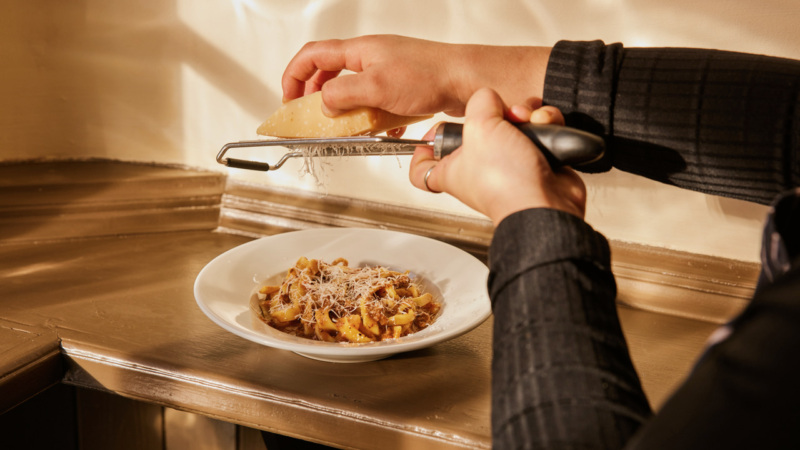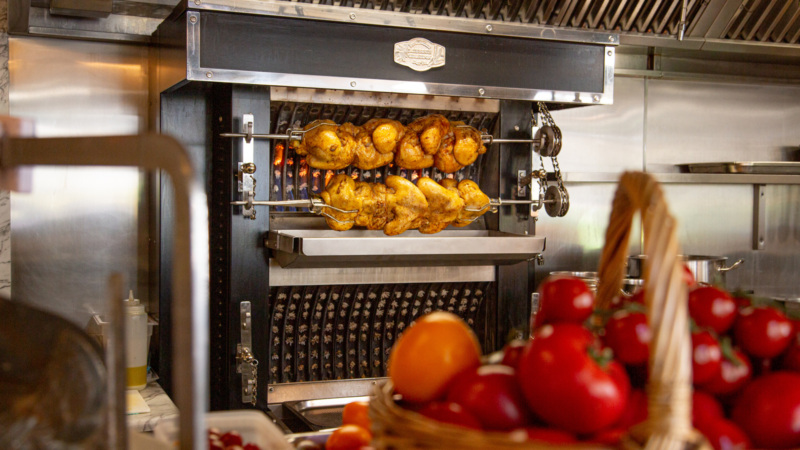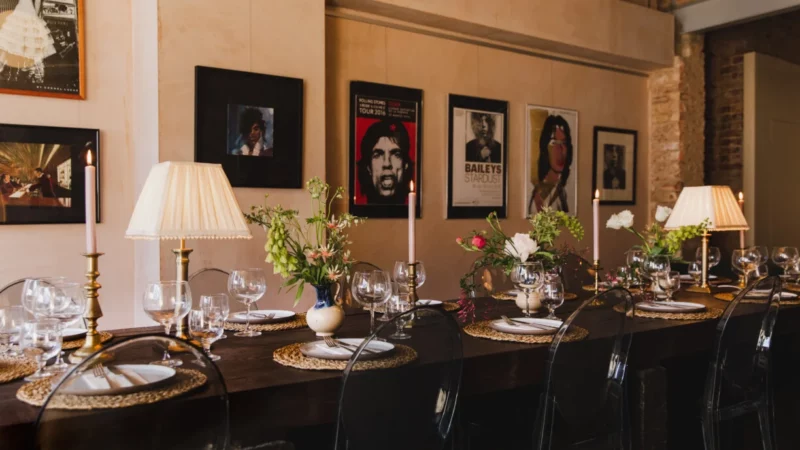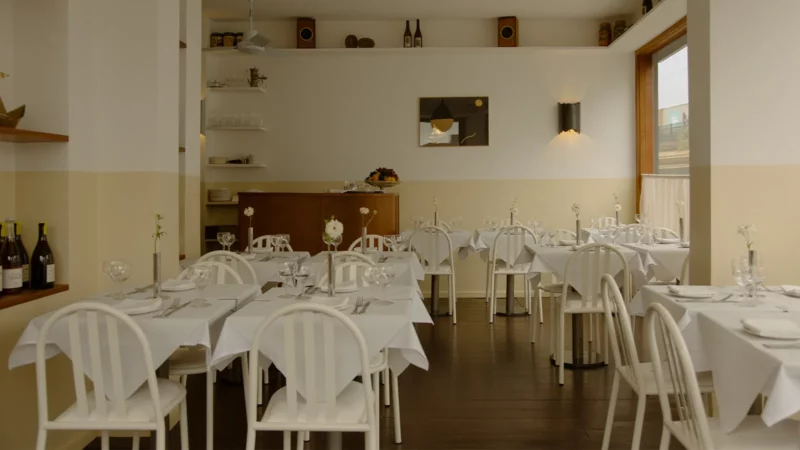
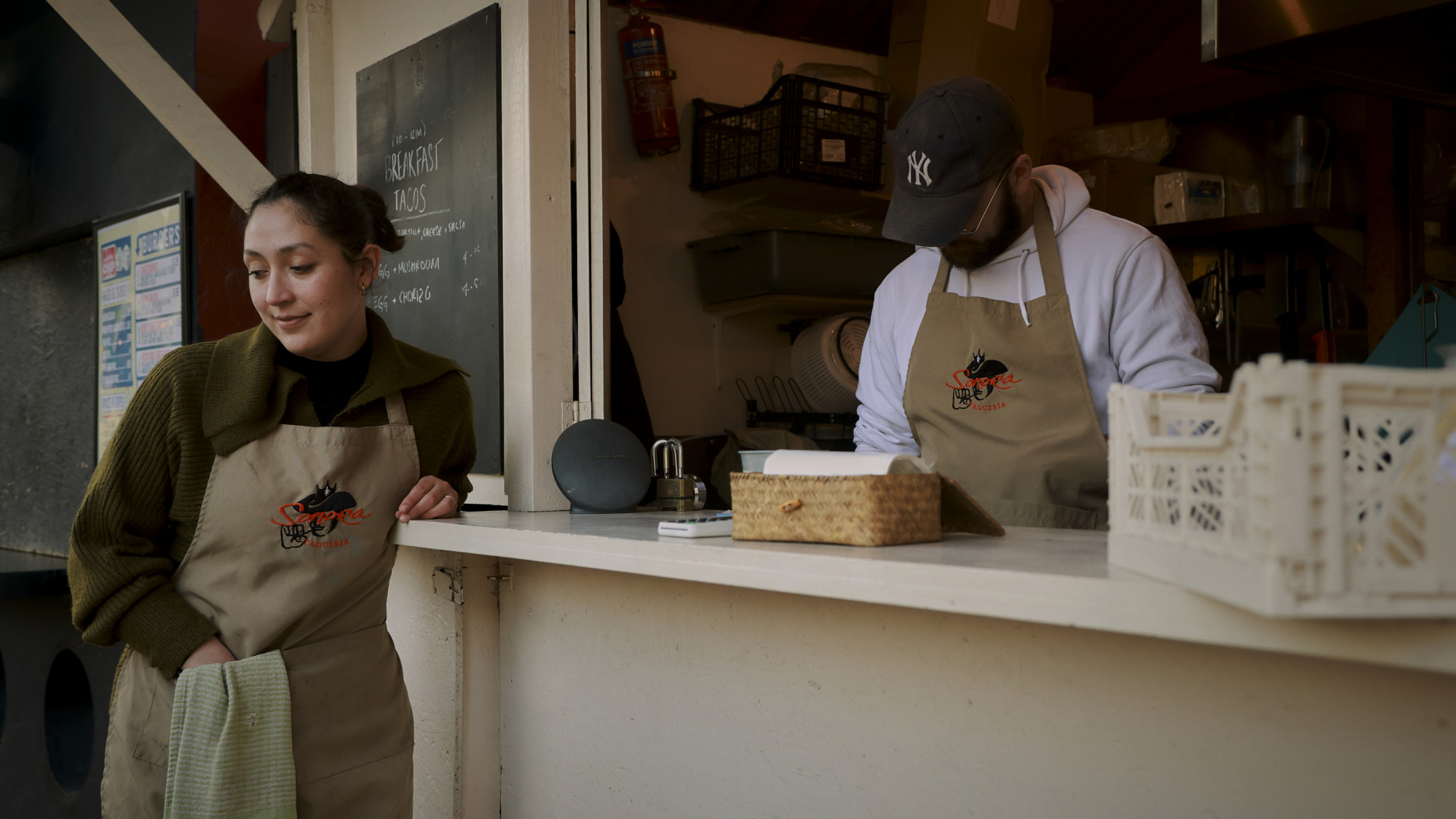
In Britain, Everyone Loves Mexican Cuisine. But How Do We Centre The Community?
Karla Zazueta moved to Britain almost two decades ago, founding a successful cooking school championing the cuisine of her native Mexico. For those two decades, Zazueta and her national compatriots have worked to reshape misconceptions of their cuisine and cultural identity, misconceptions that Zazueta has seen first-hand, from the initial wave of Mexican cuisine making its way to high streets, to Taco Bell’s attempts to break into the British fast-food market. Given the community’s efforts, “it was a surprise”, she says, to see recent incidents such as last year’s “Mexico Week” debacle on The Great British Bake-Off, in which a litany of exhausted Mexican caricatures was wheeled out for the sake of entertainment, as well as others.
Whilst some play it off as banter, for many Brits of Mexican descent who have strived to push their heritage for years, it reveals deeper issues with Mexican and the wider Latin American culture in the UK. The representations of Mexican culture on television such as GBBO aren’t worth dwelling on and won’t be the last time Mexican cliches are depicted on British television.
The underlying issue that many overlook, however, is that those cooks and hospitality workers of Mexican heritage tell how they still struggle to be the face and leaders of their own culture, and that their voices are not adequately centred. This comes amidst a wave of commodification of their culture that many in the community have not enjoyed the rewards of. Re-centring Britain’s Mexican community in conversations about their heritage and culture should be an essential and simple step to recognising these cultural contributions – but how do we get there?
With a fraction of the population of their US counterparts (24% of the US’s nearly 45 million foreign-born residents, versus 8,869 Mexican-born residents in England at the last census) a great deal of British understanding of Mexican culture is largely informed by its proximity to and consumption of American media, be it Hollywood films, political news, or sports.
Thus, initial British Mexican cuisine focussed almost completely on a homogenised, watered-down version of the Tex-Mex Americanised form of Mexican food – a result of the clash of cultures with Mexico and its bordering with Texas, and a rich immigrant cuisine in itself – with chains such as Chiquito and Chimichanga (neither Mexican-owned) laying claim to the casual dining market in Britain. From the late 1990s, Old El Paso, the self-proclaimed “#1 Mexican food brand in the UK” (owned by US conglomerate General Mills) with its casually xenophobic commercials, was a poster child of this in Britain, an oversimplification that erased the complex diversity of a nation with dozens to hundreds of languages, ethnicities, and cultures.
In addition to the flattening of their cultural identity, the UK’s Mexican community has also struggled to be the face and experts of their own food and culture. The community witnessed a turnkey moment in 2005, as Zazueta explains, when Thomasina Miers won the 2005 edition of TV show Masterchef, which led to the opening of “Mexican street food” restaurant Wahaca (an anglicised version of the Mexican state Oaxaca) that now has over a dozen outposts nationwide as well as Miers hosting Mexican food made simple and penning a number of Mexican themed cookbooks.
***
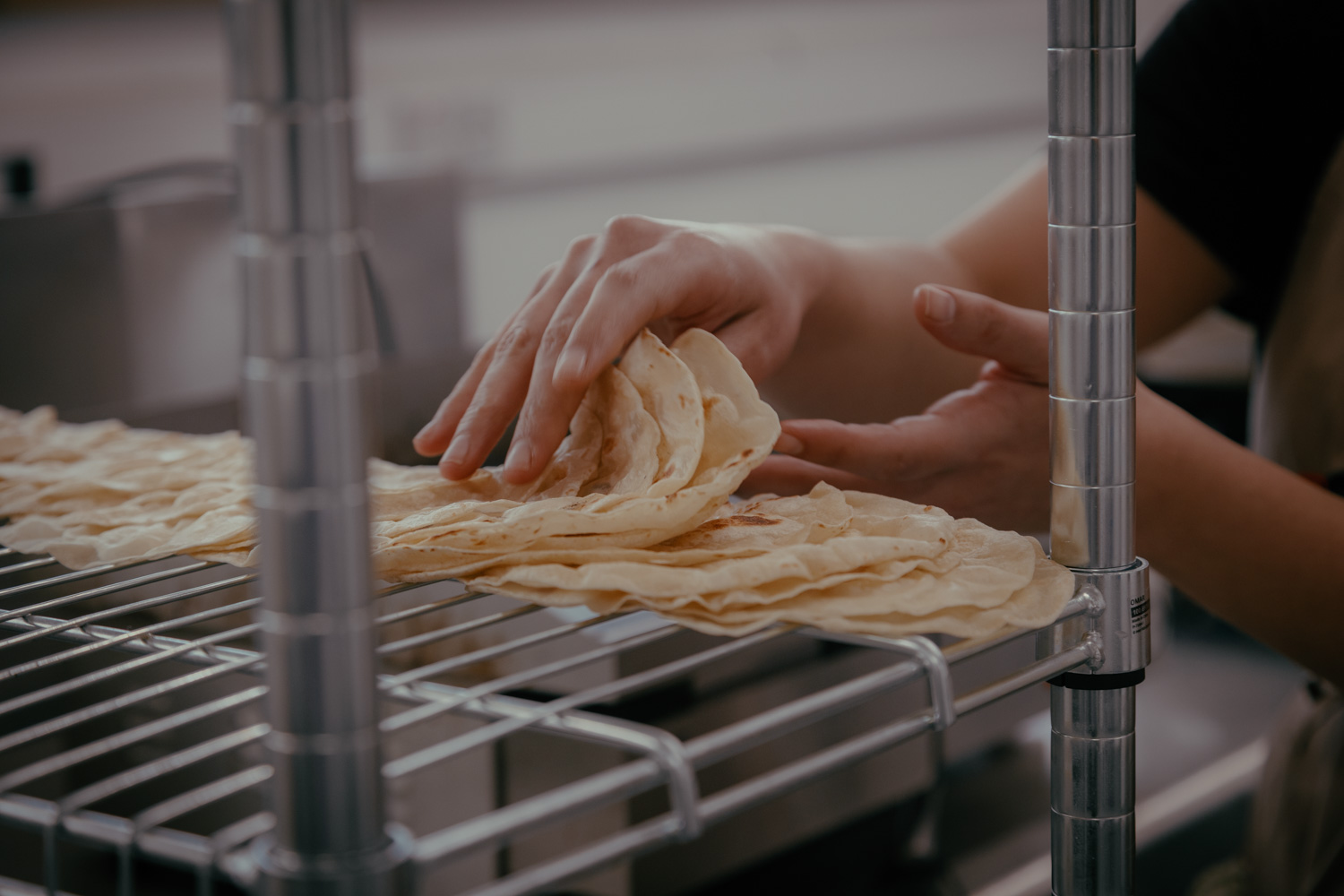
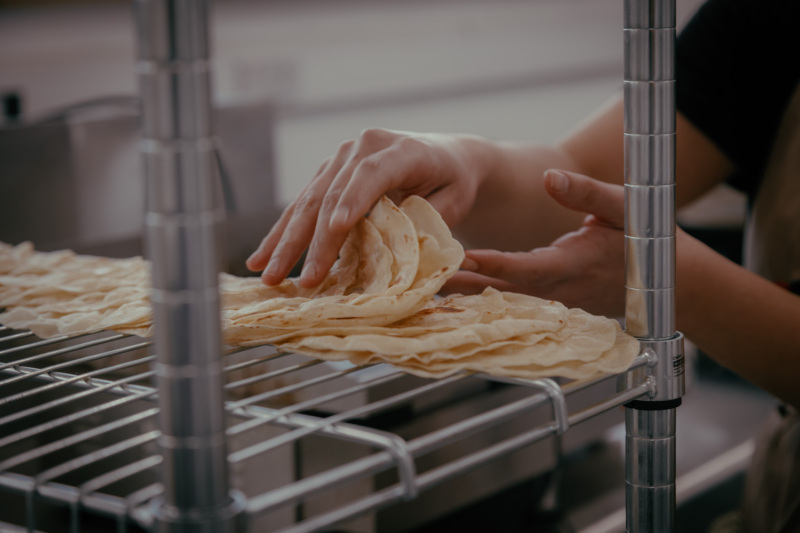
Respecting Mexican Cuisine in Britain
The Mexican cooks I spoke to (such as Zazueta) subtly nod to the debasements and interpretations of Mexican food that feature in the globetrotting world tours of almost all A-list chefs based in the UK who are often happy to banner their name over the food and culture. More so, “Mexican” recipes are sprinkled into their cookbooks often in a marauding pic n’ mix of global cultures but not always with any attributes to the culture or, in this case, acknowledgement to Mexican chefs, especially those in Britain. If accusations of appropriation are a step too far, at the very least, a tax for laziness can be levied.
Meanwhile across the UK, no flashy new shipping container complex, glossy mall, or street food fest is complete without the appearance of some form of Mexican food. Whether such establishments are commandeered by people of Mexican descent, however, seems less important to those in positions of power; meanwhile, less culturally sensitive British entrepreneurs have attempted to copyright certain aspects of Mexico’s food culture, preventing individuals of Mexican heritage from benefitting from their own cuisine.
Perhaps the most visible example of this was the highly publicised case of Taqueria, a small chain of restaurants led by Trent Alexander Ward and Daniele Benatoff (neither of Mexican descent), serving a cease and desist order aiming to prevent Sonora Taqueria, a London based outfit co-owned by Mexican born chef and restaurateur Michelle Salazar de la Rocha from trading under its current name. The ensuing outcry was swift, with global news coverage, and a Change.org petition with over 130,000 signatures protesting the litigation.
That petition’s founders, Paolo Feregrino and Oliver Villegas of MexiBrit, an organisation founded by two Mexican-born Brits to promote authentic Mexican culture in the UK, explain that a taqueria is “simply a place that sells tacos. The same as a pizzeria, bakery, or cevicheria: a place that sells a specific product. A Mexican word that you see absolutely everywhere in Mexico, the USA, and many other places in the world”.
The attempt to ‘own’ a cuisine via trademarking or otherwise is, of course, a form of cultural gatekeeping and also prevents individuals of Mexican heritage from profiting from their culture and lived experience, adding a further barrier that would otherwise benefit the community.
Who Gets to Benefit From Mexican Food?
The boom in Mexican food across Britain appears to many as a catch-22 for many of those of Mexican descent who reside here. Speaking with Salazar de le Rocha (who, along with her partner Sam Napier, has secured a permanent site in Dalston), she details of this growing popularity that “I don’t think it immediately benefits us (the Mexican community), especially when the popularisation is still coming from a foreign interpretation on what our food is.” She, like many others, believe that it can benefit in the sense of “making the general public much more aware and interested in learning more about it.” However, she adds that it is only truly beneficial to the Mexican community “if it leads to a Mexican being able to open up shop and having the immediate interest from an audience that has previous knowledge.”
The lack of opportunities for those of Mexican heritage to profit from their own culture is something that many of those of Mexican descent I spoke to have issues with. “By virtue of being in a foreign country whose currency and cost of living is much higher than in Mexico,” Salazar de le Rocha illustrates how much harder it is to succeed in life, let alone business for those of Mexican descent in Britain. Zazueta adds to this by surmising that businesses like hers and the plethora of other Mexicans in Britain, “who have been doing the work for decades now…could scale with the support” that other, predominantly white Britons do with the access to financial resources that they have after solely taking a few trips or at most, living a few years in Mexico.
Furthermore, negative stereotypes of Mexico are still as abundant today as they were decades ago. Across London’s restaurant landscape, Salazar de le Rocha tells “It was very devastating to see how every other place that called themselves “authentic Mexican”, was either a burrito place of generic, bland, badly done stuff.” Mexican born Adriana Cavita of the eponymous award winning restaurant Cavita also in agreement adds that, “People think that Mexican food is unhealthy… so I’m trying to change that perception.” For her, this means working to showcase the range and diversity of Mexican food, an approach shared by others, like Santiago Lastra of Kol restaurant, which has been awarded a Michelin star.
***
When it comes to our food or dance, they see it as a big fiesta. But when talking about gentrification, policy, visibility, education, we are faced with adversity and closed doors.— Stefania Alvarez, Save Latin Village
Food in Britain and the West is lauded when it can be simplified and “fancified” (as Salazar de la Rocha remarks) and then scaled ad nauseum. Entire nations’ cultures are reduced to a double sided A4 laminated list of foodstuffs, with associated visuals and a Spotify playlist on repeat. Being a fan of a culture is one thing, but when people can profit off a culture without being subject to the same issues that community face (especially when contributing to stereotypical notions of that community), therein lies the other inherent problem for those I spoke to.
Salazar de le Rocha elaborates on the precarious nature of the existence for many Mexicans in Britain saying that the majority here are “either students that are very limited in terms of work rights” and are prohibited from venturing into entrepreneurship by means of being “on a work visa that means you are here to do a particular job – most likely in other industries, not in food.” She adds that “Mexican immigration is much more recent than, for example, Colombian” and “there’s very few families and the community is very sparse.”
Notably, celebrated chef Adriana Cavita recently detailed her eight-month exile from London when her visa expired, also highlighting that such precariousness also extends to individuals who are already well established in their field.
***

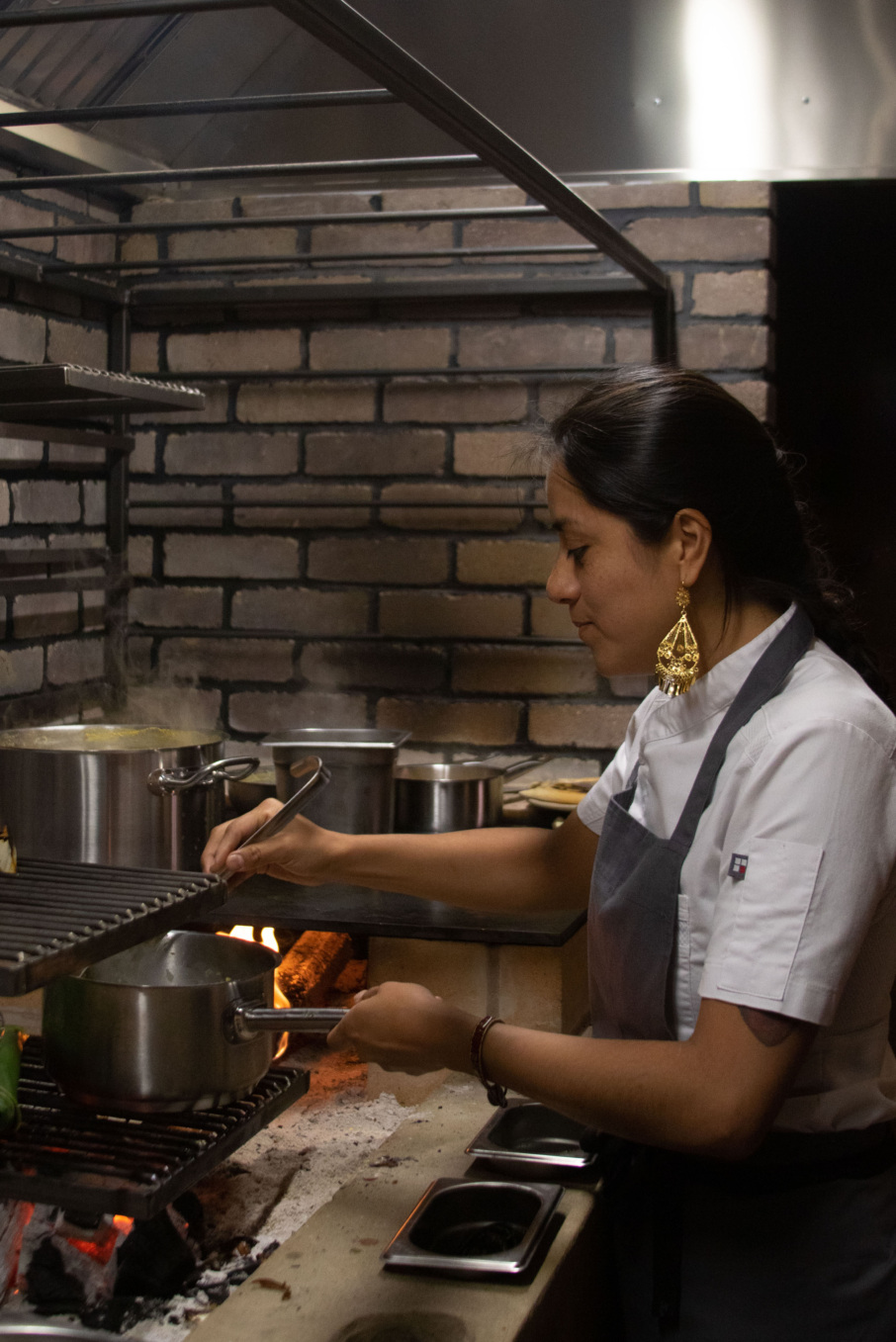
How Do We Centre The Mexican Community?
Perusing the websites of various non-Mexican-owned but themed restaurants and food businesses, many, if even supporting at all, profess to strive in sourcing food from Mexico as their primary mode of support, but for Salazar de la Rocha and others I spoke to, this act doesn’t produce tangible benefits to the community. Salazar de le Rocha details that often this act just means “our third-party produce supplier imports things from Mexico for us” and doesn’t actually mean any progressive work is being done.
As a remedy she explains that “it would be interesting to see support in the way of visa sponsorships, work programs, consulting local Mexican chefs, from bigger businesses that can afford that”.
Given this, I spoke to Mexican-born British student and activist Pablo Larios Vázquez who is the cultural and education director of Empower LATAM. Amongst the organization’s goals include helping “young Latin American people in the UK through education and career support.” As Pablo explains, beyond London and also in places like Nottingham and Sheffield, there is an emerging Mexican and Latinx community that deserves visibility.
Vázquez is firmly in the camp that businesses which profit off Mexican culture (of which he feels an overwhelming amount of enterprises in Britain do) currently aren’t doing enough to support the Mexican community in Britain and furthermore should be at the frontline of supporting initiatives like Empower LATAM, adding that “anyone who borrows anyone else’s culture for their own benefit has the moral duty to give something back to the culture.”
However, it seems that the only value the Mexican and wider Latinx community has to British enterprise is in its profitability. The Latin Village in North London, an indoor market of wall-to-wall Latinx businesses, including many cafes, restaurants, and food businesses, has been subject to legal harassment and upheaval rooted in commercial gentrification for years. Stefania Alvarez (who is of Colombian heritage), a key co-ordinator of the efforts to fight against this, added that many of the large businesses and corporations who benefit from Latinx culture are missing when it comes to supporting initiatives like Save Latin Village.
She added that she feels like people only engage with the culture “when it comes to our food or dance. They see it as a big fiesta, but when talking about gentrification, policy, visibility, education etc. we are faced with adversity and closed doors.” The interaction with the community starts with the “cool” association that comes with the food, dancing, and music but “that’s where the participation dies.”
Anyone who borrows anyone else’s culture for their own benefit has the moral duty to give something back to the culture.— Pablo Vázquez, Empower LATAM
Another opportunity lies with the industry’s media gatekeepers to acknowledge, seek out and centre the community to highlight their knowledge and expertise. As an example, the coverage of the fallout from the GBBO incident placed minimal emphasis on speaking majoritively to chefs of Mexican heritage versus those not of it who have overwhelmingly benefited from the culture. As Zazueta questioned, many didn’t see it as an opportunity to perhaps give that platform to those actually of heritage, but to speak on it for themselves.
For business owners, fundraising can also be a viable option. Missy Flynn, co-owner of Soho restaurant Rita’s in London, who was inspired by elements of Mexican food culture and aesthetics for her business, in 2017 raised thousands of pounds as relief for the devastating earthquake and ensuing damage in Puebla and Morelos and the Greater Mexico City area, donating to the organisations Ambulante and Omaze.
Flynn explains that it was important for us “to respond to something that was hurting people we have learned and shared so much with. At that time, Rita’s was a little more Mexican influenced and we had members of our team whose families were feeling the effects of what was happening”.
***
All who I spoke to were firm in the belief that there is still a long way to go in terms of Britain justly amplifying Mexican and Latinx voices. Meanwhile, the size of Britain’s Mexican community has meant that for decades, casual xenophobia, appropriation, and lack of support by the culture’s beneficiaries has largely gone without any accountability, but recent pushbacks (such as the turnout for the Mexi-Brits protest, for example) suggests a turning tide. What has at times, as Stefania Alvarez explains from first-hand experience, been termed as a “quiet community” (or as Nikesh Shukla may call Good Immigrants), simply didn’t have the tools to mobilise collectively and call out such transgressions – but this is changing.
Whilst Britain doesn’t have a comparable history of colonialism against Mexico, (as it does to the likes of the Caribbean and West Africa), the lack of responsibility felt in effectively co-opting the culture of place and nation it has little social or geographical relationship with while marginalising its community still feels unsettling. That being said, as the community grows, so too does its self-realisation of itself and thus its hubs, voices, incredible chefs and workers, and initiatives that bolster the current and future generations.
Riaz Phillips is a writer, photographer, publisher and the author of West Winds: Recipes, History and Tales From Jamaica and Belly Full: Caribbean Food in the UK. He is based in London. Follow him on Instagram and Youtube. Follow @Resy, too.



